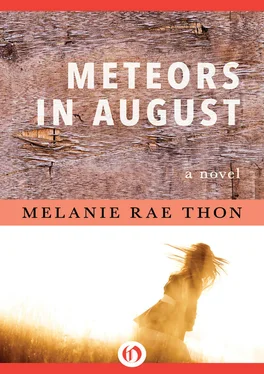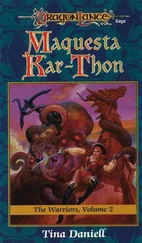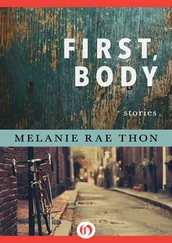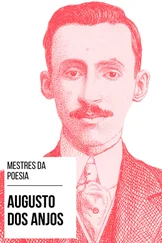It was well past midnight when we turned into my cousins’ drive. The truck was still a truck and the footmen hadn’t turned to mice. But the beautiful girl was in tatters. Our bodies seemed to expand as soon as I opened the door of the truck, and suddenly there was no room for me on the seat. I nearly fell on my butt but caught the handle in time.
The boys pulled Nina out. I wanted to run inside, but I was afraid they wouldn’t walk my sister to the door. She might sleep where she fell — in the gravel of their driveway or the pricker plants in their unmowed lawn.
Justin kept kissing her, sucking her mouth into his. Marshall took his turn too, and their hands never stopped moving, up and down her body; they rolled her between them, and I watched, too dumb to speak, too scared to take her hand and lead her away. I thought of Lewis Champeaux, how I’d watched the other boys steal his pants. I could have helped him sooner, spared him his humiliation. But I didn’t speak — not then, not now. I told myself this was different. The Indian boy was afraid. But Nina didn’t care.
I like to think I would have stopped my cousins eventually. But I can’t be certain. I might have turned my back on my sister, marched across the yard, and climbed the stairs of my dark house. I might have pulled the covers over my head and hidden in the hot tent of my bed, where I could pretend I didn’t know what the boys had planned. I’d tell myself they wouldn’t fling her into the truck bed. I’d hum louder and louder, drowning her muffled cries, blotting out the image of their dirty hands over her mouth.
But I didn’t have to face my own cowardice. Nina saved herself. Her limp body stiffened; her back arched. She whirled. Vomit sprayed against the truck, splattering yellow bile on the three of them. Marshall and Justin were too stunned to miss the first heave; but by the time she arched again, they were halfway to the house. Nina and I squatted in the drive, and I held her from behind while this night and countless others like it were torn out of her. She spewed them out on the sharp stones that cut into her knees. She retched herself dry and still she heaved till she was too weak to stand. I made her drape one arm over my shoulder and clutched her wrist tight. I wrapped my other arm around her waist and lugged her home.
She collapsed on the couch and drew her knees up to her chest. I wiped the vomit from the corners of her mouth, washed the dirt from her legs, and covered her with a sheet. As I climbed the stairs, I felt her weight still on my shoulders.
I WOKE to the smell. My fingers revealed me: mute witness, betraying sister. Just once, I wanted to believe in something enough to risk my life; I wanted to be as brave as Red Elk, ready to leap into flames to save the life of a foolish boy. The big Indian’s faith in himself kept him alive. I wanted to love someone enough to plunge a plane into a lake. But I would not leave her. I would swim down and down into the dark trench and free her.
I was afraid to face Nina, to see her on the couch, her red silk blouse encrusted with spittle, her glance an accusation I deserved. And later her steady stare would demand the whole truth. Perhaps some small piece of the night had lodged in her brain, a shard of glass; she would recall my silence, the way I inched backward, ready to turn and flee. When she saw me today, the glass might splinter in her skull, and the night would pierce her a hundred times.
But Nina was not twisted in the sheet. She sat in the kitchen, smoking. “I’ve been waiting for you,” she said. “I thought you might fry up some more of those fine potatoes.” She was a devil to be hungry after last night. She’d washed and changed her clothes. Even Nina couldn’t have ignored the bitter taste in her mouth, but perhaps she was more accustomed to it than I imagined.
My shame boiled up and turned to rage. What if I had left her? What difference would it make to a girl who could forget anything — a girl who could leave home for five years and not weep or plead for our forgiveness? She cut her own head from our photographs. She left us to imagine her death day after day. And still she was not sorry.
Nina couldn’t be satisfied. For breakfast she had three scrambled eggs, four slices of toast and the rest of those potatoes swimming in ketchup. She was ready for lunch at eleven and dinner at four. That gave her time for an extra meal at the end of the day. After each meal she fell asleep: on the porch swing, on the couch, in the bathroom, at the kitchen table. But she refused to lie down on a bed.
Somehow she managed to get Daddy out of his chair, and she walked him up and down the hall twenty times or more. By evening she had persuaded him to come downstairs. She brought him out on the porch to trim his hair. It was the only time in his life I’d known him to let someone else take a pair of scissors to his head. Their chatter rolled in through the screen door, mumbling through the living room. Nina said, “I never noticed what big ears you have.” And Father answered, “The better to hear you.” Their laughter bubbled into the kitchen, where Mother and I peeled vegetables in silence.
I saw Nina as a child of twelve, standing on Daddy’s feet as he waltzed her around the room. They bumped into chairs, shook the cabinet of china. I had to dodge them, and Mother ran from the kitchen with a spatula still in her hand. She slapped at the air and told them to stop that nonsense before they broke her teacups.
But they didn’t stop. They giggled just as they did now. Everything amused them today. “Oh dear,” Nina said, “I nicked you, Daddy.” And he laughed. I will never understand why. Then they whispered. Who knows what they said.
“It’s hot today.”
“Yes.”
“You have such coarse hair, Daddy.”
“Not like yours.”
“Mine’s so dry it breaks off when I brush it.”
“You used to have such pretty hair.”
“Yes.”
“Bound to break sooner or later.”
“My hair?”
“The weather.”
Perhaps that was all they said. But why, why did they have to whisper?
It was on the fourth day that Nina had another visitor, “another gentleman caller,” Mom said as she and Nina and I sat on the porch, and I thought of my gentleman cousins.
At first I believed the boy in the yellow Volkswagen across the street was Coe Carson, and I sat smug, thinking how surprised they’d be when they realized a boy was calling on me, not Nina. But this was a foolish thought. No boy had ever knocked on my door. No lover had thrown gravel at my window or sung to me in the dark.
My mistake was simple enough. The boy in the car was Rafe Carson, Coe’s older brother, one of those boys in the trees during the long summer before Nina ran away, the boy in the woodshed with his hand stuck down Nina’s bra, one of the dozen or so she left behind to pine for her, to imagine her golden hair in a hundred damp and hopeless dreams.
Rafe was almost as skinny as Coe, saved only by the fact that he wasn’t as tall. His red hair was cropped close to his skull. His cheek and chin showed a sparse fuzz, a futile attempt to grow a beard. He wore a white T-shirt, yellowed at the pits, and faded jeans.
Mom tried to scoot me inside, but I sat on the porch swing, smack in the middle, staring at the two wicker chairs. If at some later time Rafe and Nina decided they wanted to sit together, they’d have to ask me to move my ass. Nina shot me a look, an old look that spun through the years to a time when I would have done anything to please her — would have stood on my head in a corner till my face turned the color of a ripe tomato if it would make her happy. That look had sent me scuttling to my room night after night so she could be alone with some boy or another, but this time I just looked back at her with the blank eyes of a cow.
Читать дальше












